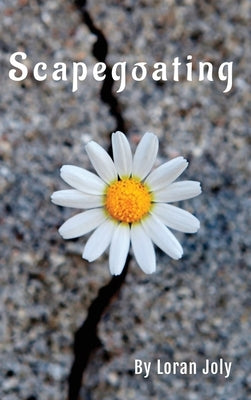Before you leave...
Take 20% off your first order
20% off
Enter the code below at checkout to get 20% off your first order
Discover summer reading lists for all ages & interests!
Find Your Next Read

Does every family, town, and country have a scapegoat?
Perhaps scapegoating is more common than we think.
This phenomenon seems to serve to simplify life for some others.
The author suggests that scapegoating is tied in with blaming others, and displacing our aggressions onto others, too. This seemingly being easier to do than to come to grips with what is "bugging us" so very much.
We may thus say that "Others" or "Someone' - the Scapegoat, in this case - is "The Problem", "The Cause", of why I am hurting so much.
And that our suffering has nothing to do with how we are processing any and all of Life's Experiences. Indeed, even "Trauma" can be interpreted differently depending on our views, and the words that color those views.
We also may have a viewpoint that this "Other" person "Could have Helped" what they "did", and so we find ourselves unable to achieve a state of Understanding that some may call "Forgiveness".
And too, Scapegoating appears to serve the purpose of "discharging" anger, onto a safer outlet than the original sources that had stimulated anger or rage in us, earlier in life. We may thus "punch the pillow", or "kick the dog", or use a human being in this role, a Scapegoat, as a safer vehicle than to do so with our boss or others who have economic or legal clout.
But alas, the problem is never ultimately solved: as one Scapegoat is nixed, another is needed, and so on time the end of time....
Thanks for subscribing!
This email has been registered!
Take 20% off your first order
Enter the code below at checkout to get 20% off your first order